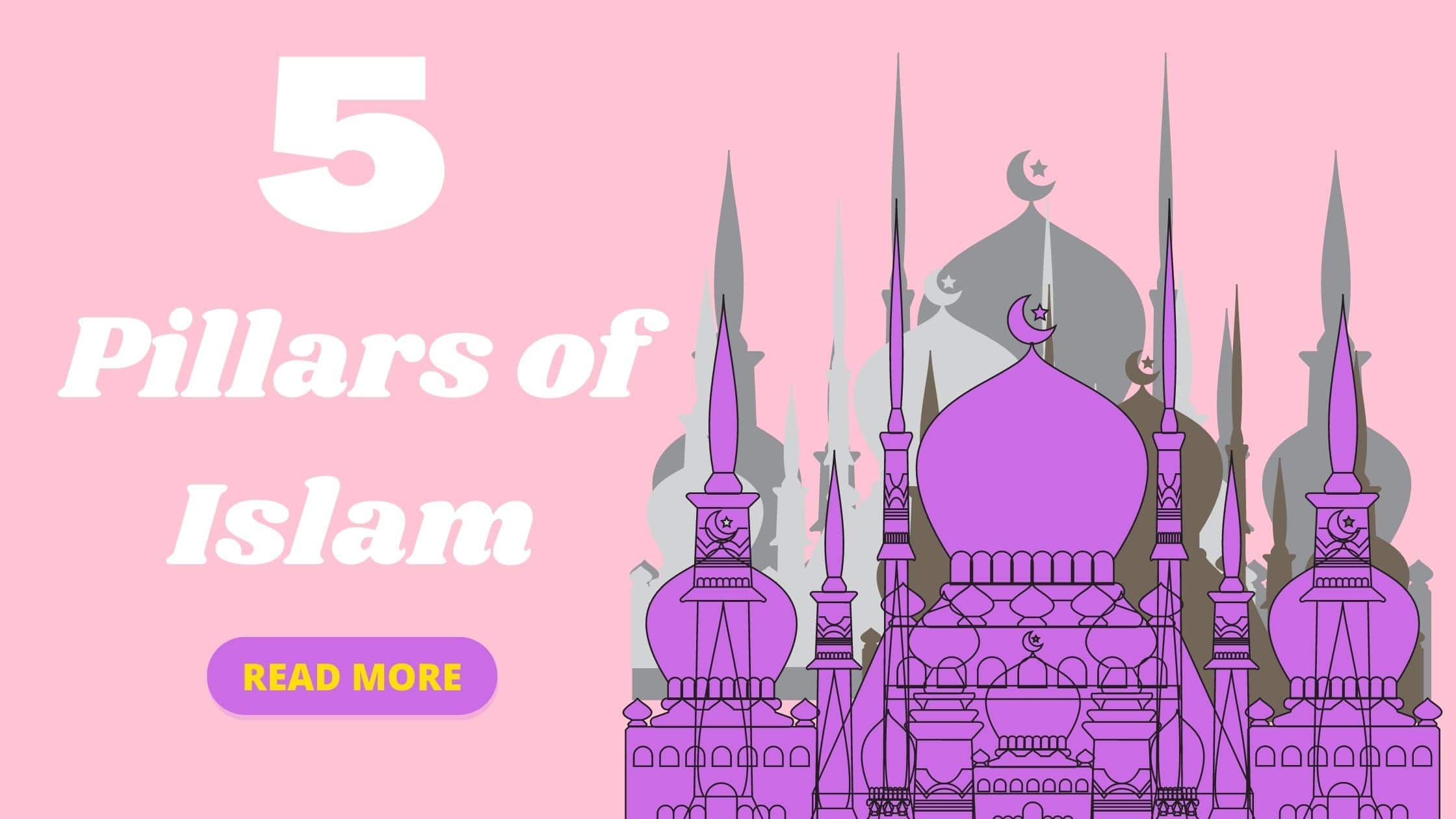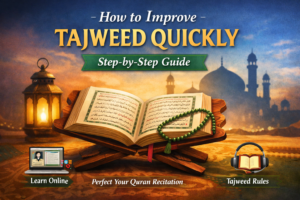Pillars of Islam are among the Islamic basics that new Muslims learn about religion, in addition to non-Muslims who want to study Islam.
These pillars indicate mandatories that men and women should do to worship and obey Allah. They are the keys to faith in Islam. Moreover, they are the foundations that is religion based on them.
Another fact to remember is adherence to the pillars of Islam represents following the prophet Muhammed’s (PBUH) “Sunnah”, and these foundations establish a firm link between Muslims and the creator. In this article, we will dive deeper to identify in detail what are the Islamic pillars.
Table of Contents
The First pillar is the Profession of Faith (Shahada)
The first pillar of Islam is the confession that there is no God except Allah and Muhammed (PUBH) the messenger of Allah.
The profession of faith is a key to converting to Islam for non-Muslims, as they should say the shahada statement firstly to become Muslims in conviction “There is no God but God and Muhammad is his prophet”.
The Profession of Fatih shouldn’t only be based on the verbal declaration, but also on the initial faith that Allah is the only creator and Muhammed is the messenger of Islam. Furthermore, it indicates the belief in oneness.
Muslims say shahada every day in their prayers. Also, they say it while going through the agony of death to get a good end and enter paradise. Prophet Muhammed said:” He whose last words are: La ilaha illal-lah, enters Paradise”.
Shahada is among the foundations that remind us of life’s purpose.
The Second pillar is the Daily Prayers (Salat)
The second foundation in the pillars of Islam is the five prayers that Muslims perform every day to obey Allah’s commandments and maintain the connection between themselves and the creator.
Muslims perform this mandatory five times daily at home, in mosques, and everywhere in the direction of Mecca “Qibla”.
The five prayers are
- Fajr Prayer: the first prayer that Muslims perform before sunrise to start off the day.
- Zuhr Prayer: the second prayer which is performed after the sun passes its highest, at midday.
- Asr Prayer: the third prayer that Muslims perform in the afternoon.
- Maghrib Prayer: the fourth prayer that is done at sunset.
- Isha Prayer: the final prayer that Muslims do at night.
Muslims do prayers according to the calls to prayer “Adhan”, which declares the time of each prayer. They perform by following the same steps as prophet Muhammed did, as he said: “Pray as you have seen me praying”.
Furthermore, Muslims perform daily prayers according to some motions such as Ruku, Qiyam, Sujud, and Tashahhud.
This worship requires some terms such as performing ablution (Wudu) before praying, as Muslims should be purified firstly, as well as making the intention only for Allah’s satisfaction.
The Third pillar is the Alms-Giving (Zakat)
The third tenet in the pillars of Islam is Zakat. It’s a charitable deed that Muslims do by donating money or properties such as gold and silver. It’s a yearly obligation that Muslims perform to purify their money and souls and aid the deserving.
At least, Muslims should give 2.5% of their wealth every year. The time of this obligation can be at the end of Ramadan month and before Eid. It’s called “Zakat Al Fitr”.
According to the Quran, there are eight categories of people who receive zakat:
- The poor (Al Fuqara)
- The needy (Al Masakin)
- Zakat administrators (Al ‘Amilina ‘Alayha)
- New Muslims and Muslim community friends, whose’ hearts can be reconciled (Al-Mu’allafati Qulubuhum’).
- In the cause of Allah (Fi Sabil Allah).
- The debt-ridden (Al-Gharimin).
- Slaves and captives in bondage (Fir Riqab)
- Needy travelers (Ibnas Sabil).
On the other hand, Muslims shouldn’t give zakat to specific categories, who don’t deserve it such as those who can work, the rich, payer’s ascendants, descendants, and wives, and non-Muslims
Muslims who share their wealth should be financially stable. This worship is not only for aiding recipients but also helps them to become selfless.
In Islam, Zakat mainly comes in two types:
- Zakah of Wealth (Zakat ul Mal): Muslims pay it any time, it should exceed the minimum amount of zakah (Nisab)
- Zakah of Breaking the fast (Zakat al-Fitr): Muslims pay it at Ramadan’s end with a fixed zakatable amount.
Learn the Quran online to recognize the verses in which Allah mentioned the five pillars of Islam.
The Fourth pillar is Fasting (Sawm)
The fourth pillar in Islam is fasting, which Muslims do during Ramadan, the ninth month of the Islamic calendar. Every year, Islam followers fast for the whole month (29 or 30 days).
Muslims start fasting during Ramadan after Fajr’s call to prayer (Adhan). Their fasting lasts until sunset (Maghrib prayer). This worship requires refraining from food and drinks.
They can bear long hours a day without eating and drinking by consuming suhoor, which is a small meal that Muslims eat ahead of sunrise.
Moreover, there are more terms that Muslims should commit throughout Ramadan in fasting time such as refraining from sexual activity and smoking.
All Muslims are obliged to fast. Except for categories who can’t do this worship, due to their health and hard conditions. They are the sick, travelers, pregnant and breastfeeding women, and children.
Fasting help Muslims learn self-discipline, build a strong relationship with Allah and repent to him to ask his forgiveness, as they do more obligations in Ramadan. For instance, they recite Quran, perform the Taraweeh prayer, and give sadaqah to needy people.
The Fifth pillar is the Pilgrimage (Hajj)
The final and fifth pillar in Islam is the Pilgrimage or Hajj that Muslims make by visiting the holy mosque “Masjid al-Haram” in Mecca.
Annually, there is a fixed time for doing this worship, as the season of Hajj takes place on the 8th day of Dhu al-Hijja, the final month in the Islamic calendar.
The Pilgrimage period lasts for the 12th or 13th day of the Dhu-al Hajj month. This worship is a spiritual experience, as Muslims get closer to Allah and purify themselves from sins they have done.
Throughout the Pilgrimage, Muslims visit more sacred locations such as the tent settlement of Mina, Mount Arafa, and Muzdalifah.
Doing Hajj rituals requires essentially financial and physical capacity. On the other side, some categories are exempt from doing this worship:
- Children.
- The debtor.
- The sick.
- The elderly and weak.
- The creditor.
It’s noteworthy that prophet Muhammed (PBUH) was the first one who performed Hajj in 628 CE, and his companions learned from him all the rituals of this pillar.
Muslims can fulfill all the Pilgrimage rituals if they do the following steps:
- Making the intention for Hajj by assuming Ihram from Miqat.
- Pefroming Umrah rituals.
- Doing ritual prayers at Mina and staying there for a day.
- Standing on Arafat’s Mount on the 9th day to remember Allah by making dua and supplicating to him.
- Heading to Muzdalifah to stay for a night.
- Doing Tawaf-al-Ifadah on the 10th day.
- Coming back to Mina for stoning the devil.
- Completing the stoning of the devil on the 11th and 12th days.
- Buying an animal, whether a lamb or camel, for slaughtering (Nahr).
- Shaving the head for men (Halq) or shortening hair for both men and women (Taqsir).
- Performing tawaf and sa’i.
- Performing the last tawaf, which is the farewell tawaf.
You can learn more about the Pilgrimage’s rituals in detail by joining Bayan al-Quran Islamic courses to learn Islam online.
Where did the 5 pillars of Islam come from?
The major source of the pillars of Islam is the noble Quran. Moreover, the prophet Muhammed (PBUH) clarified the five pillars of Islam.
On the authority of Abdullah, the son of Umar ibn Al-Khattab (may Allah please on them), who said:” I heard the Messenger of Allah (ﷺ) say, “Islam has been built on five [pillars]: testifying that there is no deity worthy of worship except Allah and that Muhammad is the Messenger of Allah, establishing the salah (prayer), paying the zakat (obligatory charity), making the hajj (pilgrimage) to The House (the Kabba), and fasting in Ramadhan.” [Bukhari & Muslim]
What is the purpose of the 5 pillars of Islam?
Besides identifying the five pillars of Islam, some purposes indicate their importance in Islam:
- They teach Muslims to give priority to Allah’s worship and satisfaction in their lives.
- They boost the Piety of Allah and strengthen the spiritual side.
- They unite Muslims and bring them together to worship only God and believe in the final messenger (PBUH)
- They are a reminder of Islam’s basics, principles, beliefs, and life’s purpose.
- They lighten up the hearts, purify them from sins, and enrich the souls.
- They remind us of Allah’s blessings in life.
You can learn the pillars of Islam online course with professional tutors who will guide you to get a deep, proper comprehension of Islam.
Conclusion – What are the five pillars of Islam?
There are five pillars of Islam which are: the profession of faith (shahada), daily prayers (salat), giving alms (zakat), fasting (sawm), and pilgrimage (Hajj). Each pillar has its basis and provisions to perform them properly.
These pillars are the basics that new Muslims should learn about this religion and keys that help non-Muslims to recognize Islam’s purpose.
You can also attend online Quran Classes with Bayan al-Quran with Native Arab tutors. There are also several courses that can help you in this regard:
















